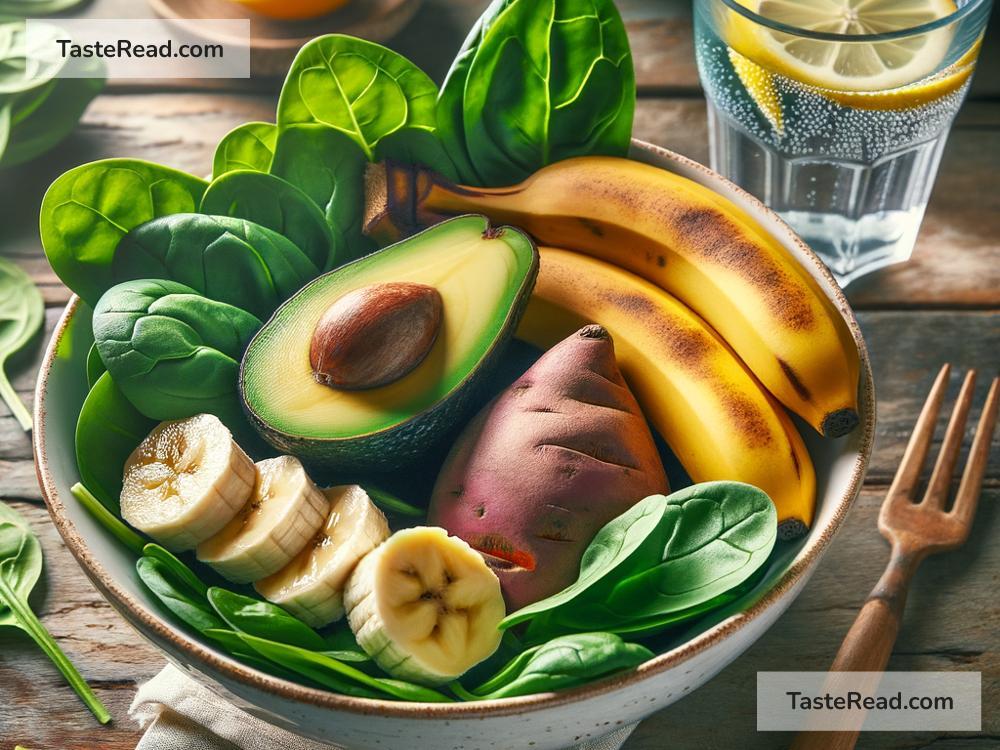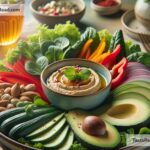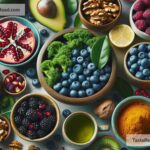Foods That Reduce Muscle Cramps: A Simple Guide
Muscle cramps are annoying and can happen to anyone, especially after intense exercise, dehydration, or even during sleep. They are sudden, involuntary contractions of your muscles that can cause pain and discomfort. The good news is that what you eat plays a big role in preventing and reducing muscle cramps. Certain foods can help keep your muscles healthy and prevent cramping. Today, we’ll talk about the best foods to fight muscle cramps and how they work.
Why Do Muscle Cramps Happen?
Before jumping into foods, let’s understand why muscle cramps happen in the first place. Muscle cramps are often caused by dehydration, poor blood circulation, or an imbalance of minerals like potassium, magnesium, calcium, and sodium in the body. These minerals are called electrolytes, and they help your muscles contract and relax. If your body is low on electrolytes or water, your muscles may not function properly, leading to cramps.
Now, let’s dive into the foods that can help prevent and ease muscle cramps.
1. Bananas: Nature’s Power Snack
Bananas are famous for being rich in potassium, an essential electrolyte for muscle function. Potassium helps your muscles contract and relax properly. If you have low potassium levels, you’re more likely to experience cramps. Bananas also provide natural sugar for energy and are easy to carry around as a snack.
How to eat them: Have a banana before or after exercise or as an afternoon snack.
2. Spinach: A Green Superfood
Spinach is packed with magnesium, which plays a key role in relaxing muscles. Magnesium helps regulate muscle contractions and prevents cramping. If you’re not getting enough magnesium, your muscles may twitch or cramp unexpectedly.
How to eat it: Add spinach to salads, smoothies, or cooked dishes like pasta. If you don’t love spinach, you can try other leafy greens like kale or Swiss chard.
3. Sweet Potatoes: A Nutrient Powerhouse
Sweet potatoes are rich in potassium, magnesium, and calcium—all important electrolytes for muscle health. They also contain complex carbohydrates, which provide long-lasting energy during workouts and help reduce the risk of cramps.
How to eat them: Bake, boil, or roast sweet potatoes for a delicious side dish or snack.
4. Watermelon: Stay Hydrated
Dehydration is a major cause of muscle cramps. Watermelon is an excellent choice for staying hydrated because it’s mostly water (over 90%) and contains potassium. It’s also refreshing and perfect for hot days or after an intense workout.
How to eat it: Have a slice of watermelon as a snack or blend it into a smoothie.
5. Avocado: Creamy and Full of Nutrients
Avocados are rich in potassium and magnesium, making them a great food for preventing muscle cramps. These nutrients work together to ensure your muscles stay healthy and function properly. Plus, avocados are heart-healthy and versatile.
How to eat them: Use avocado as a spread on toast, add it to salads, or mash it into guacamole.
6. Yogurt: A Calcium Superstar
Calcium plays a big role in muscle contraction. If your calcium levels are low, your muscles can become overactive, leading to cramps. Yogurt is an easy and tasty way to get a calcium boost. It also contains protein, which helps repair muscle tissue after exercise.
How to eat it: Enjoy yogurt with fruit, nuts, or granola. Choose plain yogurt for fewer added sugars.
7. Oranges: A Zesty Dose of Potassium
Oranges offer potassium and hydration in one sweet package. The vitamin C in oranges also supports overall muscle health and recovery, especially after exercise.
How to eat them: Snack on fresh oranges, drink orange juice (preferably fresh-squeezed), or toss orange slices into a salad.
8. Pumpkin Seeds: Tiny but Mighty
Pumpkin seeds are loaded with magnesium, which is excellent for relaxing muscles and preventing cramps. They’re also rich in healthy fats and protein, making them a great snack to fuel your body.
How to eat them: Use pumpkin seeds as a snack, sprinkle them on salads, or add them to oatmeal.
9. Coconut Water: Nature’s Sports Drink
Coconut water is full of electrolytes like potassium and magnesium, making it a natural way to replenish your body after sweating. This refreshing drink is perfect for hydration and muscle recovery.
How to consume it: Drink coconut water after exercise or on hot days when you need hydration.
10. Fish: A Source of Omega-3s
Fish like salmon and mackerel are packed with omega-3 fatty acids, which reduce inflammation and improve blood flow to your muscles. Better circulation helps prevent cramps and supports faster recovery after physical activity.
How to eat it: Grill, bake, or pan-fry fish, and pair it with veggies for a balanced meal.
Final Thoughts
Eating the right foods can significantly reduce muscle cramps and keep your muscles healthy. Focus on foods rich in potassium, magnesium, calcium, and water to strengthen your muscles and prevent cramping. If you often experience muscle cramps, make sure to stay hydrated, eat a balanced diet, and stretch regularly.
The next time you feel a cramp coming on, reach for a banana, sip on coconut water, or enjoy a handful of pumpkin seeds. Your muscles will thank you! By making small changes to your diet, you can say goodbye to those pesky cramps and live more comfortably.
Stay healthy and keep your muscles happy!


